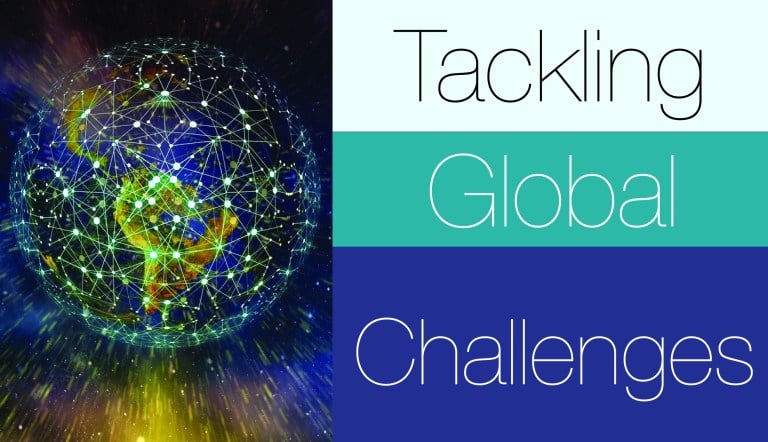Once dubbed the “Garbage Man” by CNN, Mike Biddle MBA ’91 has devoted his life to sustainability efforts centering the reuse of plastic. Now, he hopes to share his experiences with the world.
In the first episode of the Tackling Global Challenges speaker series, Biddle, who now serves as the managing director of Ewok Innovations, presented “Challenges & Opportunities in Plastic Recycling & Disposal, ” on Thursday.
Formerly a chemical engineer at Dow Electrical, Biddle noticed that used plastic could be recycled and reused. According to Biddle, when upper management noticed that he was investing so much time into the recycling process, they told him they “didn’t hire a Ph.D. in chemical engineering to work on garbage.” To turn his idea of efficiently sorting and processing plastics into a reality, in 1994 Biddle founded MBA Polymers. With three plants around the world, Biddle said it is the largest, most advanced company for plastic recycling, processing around 250 million pounds of plastic a year. At the processing plants, plastic is extracted and processed into pellets that can be reused in future, high-quality plastic products.
Around 200 participants attended the Zoom speaker event. Participants received detailed briefing material prior to the event that covered some of the speaker’s background, introduction videos featuring Biddle and documentaries such as “Plastic China” that provide context about the severity of the plastic issue. This lecture series, presented by Stanford’s TomKat Center, aims to shine light on sustainability challenges, hoping to inspire audience members to improve and develop their own sustainability projects.
Biddle repeatedly said that it was important to spread awareness about the plastic crisis, telling attendees that 18 billion pounds of trash enter the ocean every year. To put this number into perspective, he displayed an art piece from the Zurich Museum of Design of a pile of trash that reaches from one end of the hallway to another: That is how much trash enters the ocean every 15 seconds, he said.
While plastics could in theory be banned completely, Biddle pointed to a study done in Europe that found that plastic was actually the most efficient and environmentally conscious material available.
“If you replace plastics with the next most logical material — which will be a metal, in most cases — you dramatically require much more land use,” Biddle said. “Your mineral depletion would be significantly higher as with your energy use, your water use and your CO2 emissions.”
Biddle told aspiring entrepreneurs in the audience that he believes the key to his success is that he and his companies are mission-driven, adding that he found hiring people “smarter, better, and very different than” himself kickstarted its exponential growth.
Biddle encouraged everyone to contribute to improving sustainability, reiterating that any individual can make a difference with just a simple change — whether by changing their diet or by walking and biking instead of taking a car.
This article has been corrected to reflect that Stanford’s TomKat Center presented the event, and that 200 people attended. The Daily regrets these errors.
Contact Sharlene Chen at sharlenechen7 ‘at’ gmail.com.
